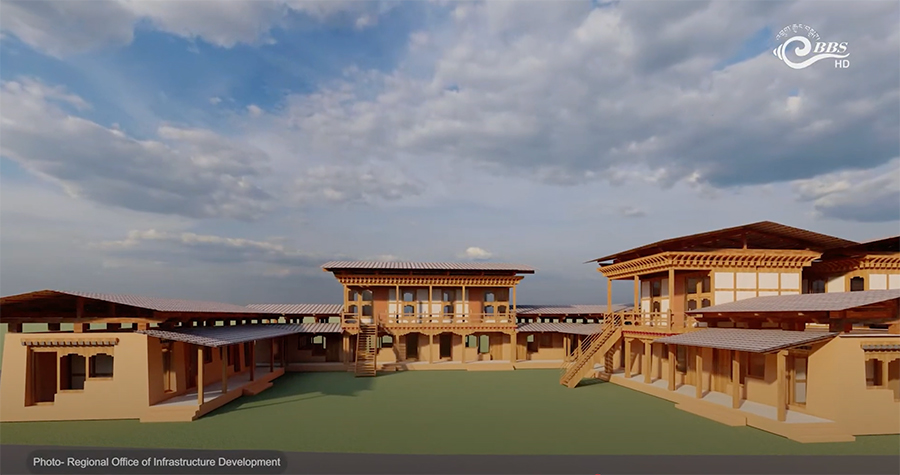 Punakha is a key tourist destination in the country. However, due to the absence of a designated craft market, tourists have limited opportunities to explore local handicrafts. Currently, Barp Gewog is the only place in the district with some handicraft shops. But there’s good news; a new craft market will soon be established, enhancing accessibility and promoting indigenous crafts.
Punakha is a key tourist destination in the country. However, due to the absence of a designated craft market, tourists have limited opportunities to explore local handicrafts. Currently, Barp Gewog is the only place in the district with some handicraft shops. But there’s good news; a new craft market will soon be established, enhancing accessibility and promoting indigenous crafts.
 The groundbreaking ceremony for the craft market, took place yesterday. The Machhen Zimpon presided over the ceremony, in the presence of the industry, commerce, and employment minister. The market will be built near the Khuruthang KaJa Throm.
The groundbreaking ceremony for the craft market, took place yesterday. The Machhen Zimpon presided over the ceremony, in the presence of the industry, commerce, and employment minister. The market will be built near the Khuruthang KaJa Throm.
The market will have 27 traditionally designed structures.
Unlike Thimphu’s existing craft market, it will be built using rammed-earth walls and wooden structures. The project aims to reduce the reliance on imported craft items and establish Punakha as a premier destination for indigenous handicrafts.
Punakha is part of Bhutan’s tourism triangle alongside Paro and Thimphu. However, it currently lacks a dedicated craft market. Officials believe the new market will provide tourists with easy access to local handicrafts in one convenient location, eliminating the need to visit multiple scattered shops.
“If implemented carefully, this craft product can not only promote tourism but also help preserve our indigenous craft skills, products, and designs. It could potentially become a unique selling point for Bhutan, enhancing both Bhutanese tourism and the creative industry,” said Sonam Penjor, the Director of the Department of Media, Creative Industry and Intellectual Property, MoICE.
The market will be funded through the Economic Stimulus Programme, with an estimated budget of 30 to 50 million ngultrum. The Department of Media, Creative Industry, and Intellectual Property will oversee the project.
Construction is set to begin soon and is expected to be completed within 18 months. Once finished, the market will provide a dedicated space for selling locally produced handicrafts, catering to both tourists and the domestic market.
Changa Dorji, Punakha
Edited by Kipchu








